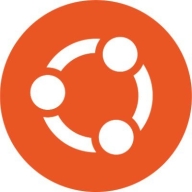

Ubuntu Linux and Flatcar Container Linux are competing operating systems, each with distinct strengths. While Ubuntu Linux is advantageous in pricing and support, Flatcar Container Linux is preferred for its superior features due to its robust container-native design.
Features: Ubuntu Linux offers strong community support, an extensive package repository, and versatility across various environments. Flatcar Container Linux stands out in container deployments with automatic updates, in-depth security features, and specialized container management. The key difference is Ubuntu's general-purpose capabilities versus Flatcar's efficient container management.
Ease of Deployment and Customer Service: Ubuntu Linux benefits from an easy installation process and community assistance. Flatcar Container Linux provides a container-optimized deployment model focusing on automation and minimal disruption, showing a specialized approach in seamless container operations.
Pricing and ROI: Ubuntu Linux typically has lower initial costs and extensive community support, offering better ROI for broad use cases. Flatcar Container Linux, potentially higher in setup, is designed for scalable container operations, often yielding better ROI for businesses focusing on container technologies, highlighting Ubuntu's general cost-effectiveness versus Flatcar’s specialized investment return.
| Product | Market Share (%) |
|---|---|
| Ubuntu Linux | 9.4% |
| Flatcar Container Linux | 0.9% |
| Other | 89.7% |

| Company Size | Count |
|---|---|
| Small Business | 84 |
| Midsize Enterprise | 21 |
| Large Enterprise | 53 |
Ubuntu Linux is an open-source platform known for its robust security, ease of use, and rapid performance. Its lightweight design and comprehensive support system make it ideal for diverse IT environments, providing seamless management and scalability options.
Ubuntu Linux stands out with its open-source nature that allows extensive customization and access to a broad range of free software. It is widely praised for its stability and a vast package repository offering regular updates, enhancing its usefulness across different sectors. The platform is equipped with a lightweight design and excellent community support, making it scalable and easy to manage. While it could improve in areas like Windows software compatibility and user interface refinement, its benefits in enterprise management and development projects are undeniable. Improved documentation, better hardware integration, and enhanced third-party application compatibility are additional focal points to consider.
What are the key features of Ubuntu Linux?
What benefits should be considered from reviews?
Ubuntu Linux is prominently implemented in industries for tasks such as server management, application deployment, and software development. Its resource efficiency and open-source tool compatibility make it a favorite for programming, research, and cybersecurity. Companies frequently use it for web hosting, cloud services, and managing multi-user enterprise solutions.
We monitor all Operating Systems (OS) for Business reviews to prevent fraudulent reviews and keep review quality high. We do not post reviews by company employees or direct competitors. We validate each review for authenticity via cross-reference with LinkedIn, and personal follow-up with the reviewer when necessary.